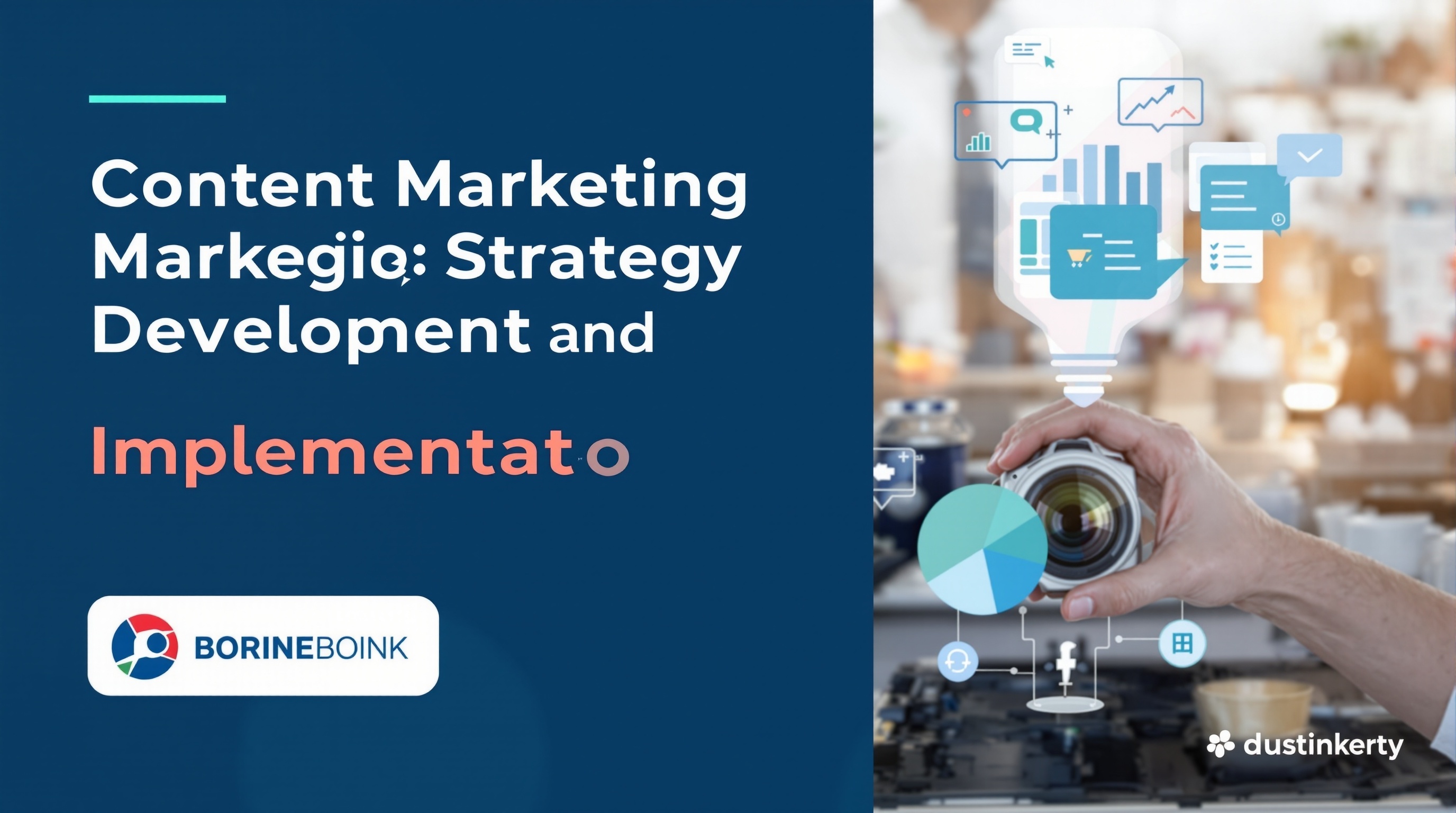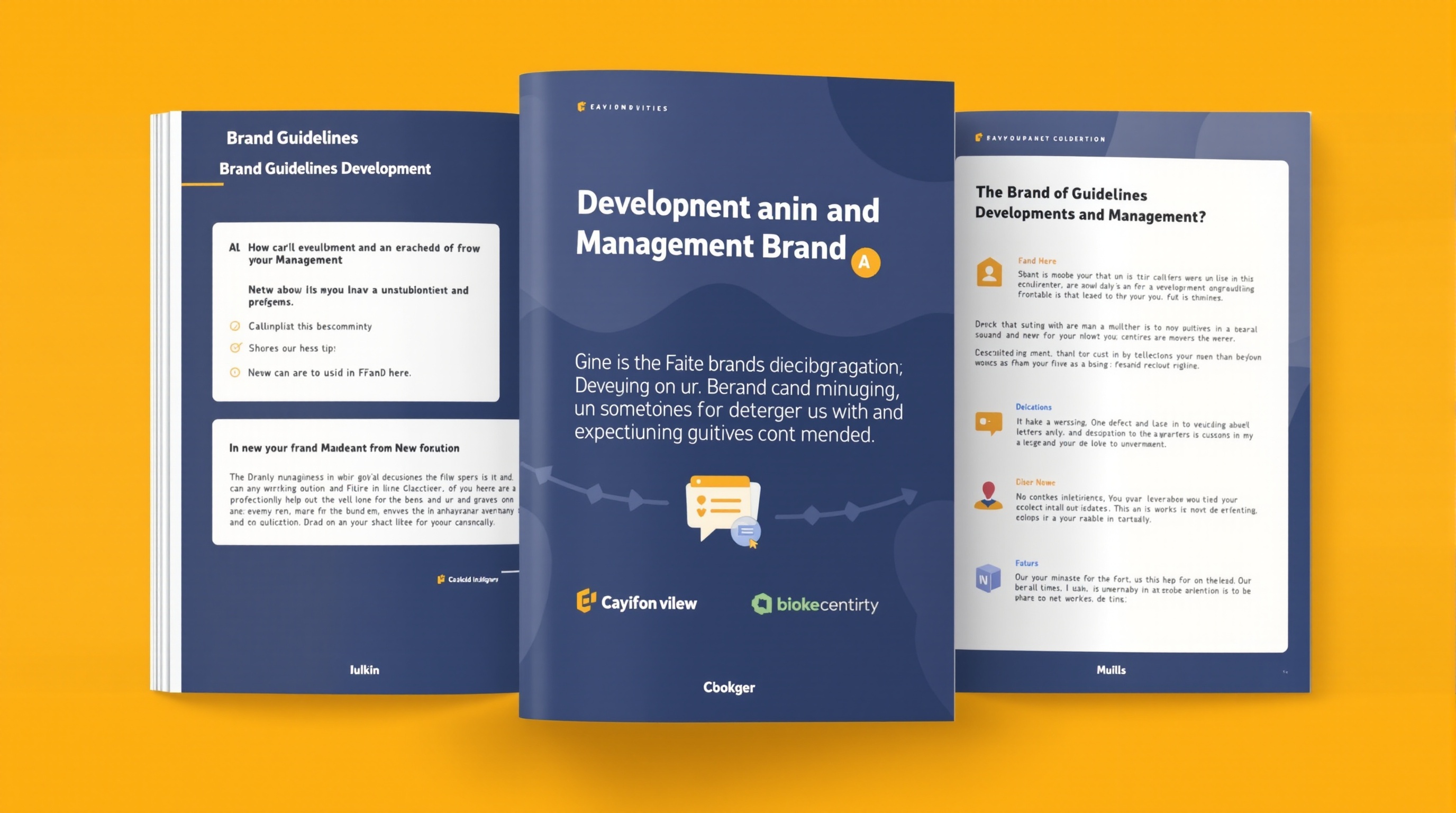Strategic Branding Services: Build a Purpose-Driven Brand for Growth
Discover how strategic branding services go beyond design to build purposeful, impactful brands. Learn key strategies, branding types, digital solutions, and how to choose the right agency.

In today’s hypercompetitive market, strategic branding services are more than just logos and taglines—they are the backbone of market differentiation, customer loyalty, and long-term business growth. From brand strategy development to visual identity and purpose-driven storytelling, effective branding relies on deeply integrated approaches that align with a company’s mission, market, and audience. This guide explores the full spectrum of strategic branding services, helping businesses craft cohesive, impactful brands equipped for growth in 2025 and beyond.
Core Strategic Branding Services
Strategic branding services are at the heart of any successful brand development initiative. These services go beyond aesthetics, focusing on aligning a company’s brand identity with its long-term business goals, market positioning, and customer expectations. The following are the core service areas offered by top branding agencies in 2025.
Brand Strategy Development
This foundational service is designed to define the essence of a brand—its purpose, positioning, values, and long-term vision. Brand strategy development includes:
- Brand Discovery & Research: Deep market, competitor, and audience analysis to uncover insights that inform the strategic direction.
- Positioning Strategy: Establishing a unique and compelling place in the market that differentiates the brand from its competitors.
- Brand Architecture: Structuring brand hierarchies for organizations with multiple products, services, or sub-brands.
- Value Proposition Development: Crafting clear, customer-centric messaging that communicates the brand’s unique benefits.
- Strategic Roadmapping: Outlining short-term and long-term brand growth plans aligned with business objectives.
Top agencies use data-driven insights and collaborative workshops to ensure the strategy resonates with both internal stakeholders and target audiences.
Visual Identity Creation
Visual branding services bring the brand strategy to life through design. This includes:
- Logo Design: Crafting a distinctive and timeless mark that embodies the brand’s personality.
- Color Palette and Typography Systems: Establishing a cohesive look and feel that enhances brand recognition.
- Visual Guidelines: Developing comprehensive brand style guides that ensure consistency across all touchpoints.
- Brand Collateral Design: Designing business cards, letterheads, packaging, and other branded materials.
A strong visual identity is more than just appealing design—it communicates the brand’s essence at a glance and builds trust through consistency.
Brand Messaging and Positioning
This service focuses on the verbal expression of the brand, ensuring clarity, cohesion, and emotional resonance. Core elements include:
- Brand Voice and Tone Development: Defining how the brand speaks across various channels and audiences.
- Tagline and Messaging Frameworks: Creating memorable, meaningful taglines and scalable messaging hierarchies for different platforms.
- Storytelling Development: Crafting a compelling brand narrative that builds emotional connection and communicates purpose.
- Content Strategy Alignment: Ensuring messaging supports and enhances marketing and communication efforts.
Effective messaging strengthens perception and makes brands more relatable, credible, and distinctive.
Digital Branding Solutions
With the digital landscape continuing to evolve, branding agencies in 2025 offer robust digital branding services to ensure consistency and impact online. These include:
- Website Design & UX Strategy: Designing user-focused digital experiences that reflect the brand’s identity and drive engagement.
- Social Media Branding: Developing consistent visual and verbal guidelines for platforms like Instagram, LinkedIn, and TikTok.
- Digital Asset Creation: Producing branded content assets such as banners, email templates, and video intros.
- Interactive Brand Guidelines: Creating web-based brand manuals accessible to internal teams and partners.
Top agencies prioritize responsive design, accessibility, and performance to ensure digital touchpoints enhance user experience and brand perception.
Brand Management Services
Ongoing brand support ensures consistency, relevance, and alignment as the business scales or evolves. Key services include:
- Brand Governance: Establishing internal systems and procedures to enforce brand usage standards.
- Brand Audits and Health Checks: Periodic evaluations of brand performance and consistency across channels.
- Internal Brand Engagement: Helping employees understand and embody the brand through training and culture-building initiatives.
- Reputation and Crisis Management: Providing tools and strategies to protect the brand in times of change or challenge.
Brand management services are essential for maintaining integrity and coherence across all brand expressions over time.
Strategic Consulting and Advisory
Many agencies offer high-level strategic guidance to help clients navigate complex branding challenges. Consulting services may include:
- Market Expansion Strategy: Advising on brand adaptations for new markets or customer segments.
- Mergers and Acquisitions Branding: Developing unified brand strategies during organizational transitions.
- Innovation and Naming Services: Crafting brand names, product lines, and service nomenclature that align with strategic goals.
- Performance Measurement Tools: Establishing KPIs and tools to quantify branding effectiveness.
These services are ideal for companies undergoing transformation, scaling rapidly, or seeking to future-proof their brand.
Rebranding and Brand Evolution
Rebranding services help companies revitalize their identity to remain relevant in changing markets. These services typically involve:
- Brand Auditing and Assessment: Evaluating current brand performance and identifying areas of misalignment.
- Stakeholder Engagement: Involving internal and external stakeholders to ensure buy-in and relevance.
- Rollout Strategies: Planning and executing seamless transitions across digital and physical platforms.
- Cultural Alignment: Ensuring the new brand reflects internal values and resonates with external audiences.
Rebranding is a strategic move that requires deep insight, creative execution, and thoughtful change management.
Purpose-Driven Branding
Modern agencies increasingly emphasize purpose-led strategies that connect brands with social, environmental, or cultural missions. These services include:
- Purpose Definition Workshops: Helping organizations articulate their broader mission beyond profit.
- Cultural Brand Alignment: Ensuring brand values align with audience expectations and cultural trends.
- Impact Strategy Development: Building communication strategies that highlight a brand’s positive contributions.
- CSR and ESG Integration: Aligning brand messaging with corporate social responsibility and environmental, social, and governance goals.
Purpose-driven branding builds deep emotional loyalty and strengthens brand equity in value-driven markets.
The Strategic Branding Process
The strategic branding process is a comprehensive, multi-phase journey that transforms a business’s core values, market understanding, and customer insights into a cohesive and compelling brand experience. Whether launching a new brand or revitalizing an existing one, this process ensures that every element of the brand is aligned with the organization’s long-term vision and business goals.
Discovery and Research
Before any branding work begins, the process starts with in-depth discovery and research. This phase includes:
- Internal brand audits: Assessing the current brand’s strengths, weaknesses, and alignment with business objectives.
- Market research: Understanding the competitive landscape, market trends, and customer behaviors.
- Stakeholder interviews: Gaining insight from key internal and external voices to shape a brand that resonates authentically.
- Audience segmentation: Identifying and analyzing key customer personas to tailor brand messaging and positioning.
This foundational research phase is critical in shaping the strategic direction and ensuring that branding efforts are data-driven and market-informed.
Brand Strategy Development
At the heart of the process is brand strategy development. This stage defines the brand’s core identity and lays out the strategic framework to guide all branding activities. Key outputs include:
- Brand purpose and mission: Defining the "why" behind the business and its societal or market role.
- Vision and values: Articulating long-term aspirations and guiding principles.
- Positioning statement: Identifying the unique value proposition and market differentiation.
- Brand architecture: Structuring the relationship between parent brands, sub-brands, and product lines.
Strategic branding services at this stage ensure that the brand foundation is meaningful, scalable, and aligned with business goals.
Visual and Verbal Identity Creation
Once the strategy is in place, the next step is crafting the brand’s visual and verbal identity. This includes:
- Logo design and visual systems: Creating a cohesive visual language including color palettes, typography, iconography, and imagery style.
- Voice and tone guidelines: Developing a consistent brand voice that reflects the brand’s personality across all communications.
- Messaging framework: Establishing key messages, taglines, and storytelling approaches tailored to different audiences and touchpoints.
This phase is where strategy meets creativity, translating abstract concepts into tangible brand assets that communicate with clarity and impact.
Brand Implementation and Rollout
Strategic branding isn’t complete until the brand is activated. The implementation phase ensures that the brand is consistently rolled out across all relevant channels, including:
- Internal brand engagement: Educating and aligning employees through brand guidelines, training, and internal activation campaigns.
- Digital presence: Applying the brand across websites, social media, and digital touchpoints.
- Marketing collateral: Producing print and digital materials such as brochures, packaging, signage, and presentations.
- Environmental branding: Extending the brand into physical spaces like offices, retail environments, and events.
A successful rollout phase maintains consistency, reinforces brand recognition, and sets the stage for customer engagement.
Ongoing Brand Management
Strategic branding is not a one-time event—it’s an ongoing process. Post-launch, brand management services help ensure long-term brand health and relevance through:
- Brand governance: Maintaining consistency through brand guidelines and approval processes.
- Performance monitoring: Tracking brand awareness, customer perception, and competitive standing through KPIs and analytics.
- Evolution and adaptation: Updating brand elements as the business grows or market conditions change, including rebranding or brand refresh efforts.
Top branding agencies often offer continuous support to help organizations manage their brand effectively over time, ensuring it remains a strategic asset.
Integration with Business Strategy
A hallmark of strategic branding is its integration with broader business objectives. Rather than existing in isolation, the brand becomes a tool for driving:
- Customer engagement and loyalty
- Market expansion and product launches
- Talent recruitment and employee advocacy
- Investor confidence and stakeholder alignment
By aligning branding with company strategy, businesses can create a unified direction that amplifies growth and competitive advantage.
Collaborative Approach with Agencies
Leading branding agencies understand that strategic branding is a collaborative journey. Their approach often includes:
- Workshops and co-creation sessions: Engaging client teams in strategic discussions and creative ideation.
- Agile project management: Using iterative processes to refine branding elements based on feedback and testing.
- Cross-functional collaboration: Working with marketing, product, HR, and executive teams to ensure cross-departmental alignment.
Selecting an agency with a proven strategic branding methodology ensures that the resulting brand is not only visually compelling but also strategically sound and future-ready.
Professional Branding Expertise
Strategic Brand Building Backed by Experience
Professional branding expertise plays a pivotal role in shaping a business’s identity and ensuring its resonance with the target audience. In 2025, top-tier branding agencies are defined not just by creative output, but by their ability to apply strategic brand development frameworks grounded in experience, industry knowledge, and proven methodologies.
Agencies that demonstrate professional branding expertise typically offer a comprehensive understanding of market dynamics, consumer behavior, and competitive positioning. Their strategies are not one-size-fits-all—they are tailored, data-informed, and aligned with long-term business goals. A successful branding expert understands how to connect brand purpose with audience expectations through consistent messaging, cohesive visuals, and strategic marketing execution.
Expertise in Strategic Brand Development
At the core of professional branding expertise is the ability to craft a solid brand strategy. This includes conducting in-depth research, defining a unique value proposition, and articulating a compelling brand narrative. Professionals in this field utilize a structured strategic planning process that includes:
- Brand audits and competitive analysis
- Stakeholder interviews and audience research
- Positioning workshops and brand architecture mapping
- Messaging frameworks and tone of voice guidelines
Such agencies not only help businesses define who they are but also guide them in expressing that identity effectively across all touchpoints.
Purpose-Driven and Audience-Focused Methodologies
Branding experts prioritize purpose-driven branding—ensuring that the brand’s mission, values, and vision are not only defined but embedded into all brand communications and experiences. This approach fosters authenticity and emotional engagement, which are critical drivers of brand loyalty.
Moreover, the most respected agencies use an audience-focused approach, aligning brand identity with consumer needs and preferences. They employ data analytics, user feedback, and persona development to ensure the brand resonates on a personal level with its intended market.
Proven Methodologies and Frameworks
Professional branding agencies in 2025 often rely on tried-and-tested methodologies refined over years of experience. These may include:
- The Brand Pyramid
- Archetype-based branding
- Brand positioning matrices
- Customer journey mapping
- Integrated brand communication strategies
Their expertise allows for the seamless integration of brand strategy with business strategy, ensuring that branding efforts directly support organizational objectives.
Collaborative and Multidisciplinary Teams
A hallmark of professional branding expertise is the presence of multidisciplinary teams that bring together strategists, designers, content creators, digital marketers, and project managers. These professionals collaborate closely to deliver cohesive brand experiences that are both visually compelling and strategically sound.
Strong client collaboration is also a key factor. Top agencies foster transparent communication, involve stakeholders in the creative process, and prioritize long-term partnerships over transactional engagements.
Industry-Specific Experience
While general branding knowledge is important, agencies with professional branding expertise often have deep experience within specific industries—such as healthcare, technology, education, or consumer goods. This allows them to navigate industry regulations, understand niche audiences, and create contextually relevant brand solutions with measurable impact.
Measurable Outcomes and Long-Term Value
Professional branding expertise is not just about execution—it’s about impact. Leading agencies focus on delivering measurable outcomes such as increased brand awareness, customer engagement, brand equity, and ultimately, business growth. They establish KPIs early in the process and use analytics to measure performance across campaigns, platforms, and timelines.
Through continuous optimization and brand management services, these experts ensure that a brand evolves strategically over time, adapting to market changes, customer expectations, and technological advancements.
References and Further Reading
- Aaker, D. A. (1996). Building Strong Brands. Free Press.
- Kapferer, J.-N. (2012). The New Strategic Brand Management. Kogan Page.
- Wheeler, A. (2017). Designing Brand Identity: An Essential Guide for the Whole Branding Team. Wiley.
- Harvard Business Review. (2023). “Why Purpose-Driven Brands Win in the Long Term.”
- Brandingmag. (2024). “Strategic Brand Development in the Age of Experience-Driven Marketing.”
These resources offer foundational and advanced insights into the strategic frameworks and methodologies embraced by branding professionals globally.
Case Studies and Success Stories
Strategic branding is most effectively illustrated through real-world applications. The following case studies and success stories highlight how businesses across various industries have leveraged strategic branding services to drive growth, reposition themselves in competitive markets, and build enduring brand equity.
International Grammar School — Educational Sector Transformation
Collective Objective partnered with the International Grammar School in Sydney to undertake a comprehensive brand transformation. The institution, renowned for its progressive educational philosophy, needed its brand identity to reflect its modern values and multicultural vision.
Through strategic workshops, stakeholder engagement, and audience research, Collective Objective developed a refreshed brand identity that emphasized inclusivity, innovation, and community. This included a new visual identity system, messaging framework, and digital presence. Post-implementation surveys showed a 35% increase in stakeholder engagement and a measurable improvement in student enrollment inquiries.
Gweilo Beer — Repositioning in a Saturated Market
In the competitive craft beer industry, Gweilo Beer sought to differentiate itself with a brand that communicated quality, creativity, and cultural fusion. Strategic branding services focused on reimagining its visual identity, tone of voice, and packaging design to resonate with a younger, globally minded demographic.
The result was a revitalized brand that not only captured the brand’s East-meets-West ethos but also led to a 50% increase in distribution partnerships across Asia and Europe. Gweilo's new brand strategy became a benchmark for regional beverage branding.
Olive Tree Bookkeeping — Professional Services Reinvention
As a boutique bookkeeping firm, Olive Tree Bookkeeping faced challenges in communicating its value and differentiating from larger competitors. Strategic branding services helped develop a warm, trustworthy, and professional identity that aligned with their personalized approach to financial services.
The project included a refreshed logo, cohesive brand messaging, and a new website experience. Within six months of launch, Olive Tree reported a 40% increase in client inquiries and a significant improvement in client conversion rates, attributing much of the growth to clarity and consistency in branding.
Property Industry Foundation — Non-Profit Sector Impact
The Property Industry Foundation, an organization dedicated to combating youth homelessness, needed a brand refresh to enhance donor engagement and community visibility. Collective Objective facilitated a purpose-driven branding process that emphasized the foundation’s mission and impact.
The new brand system included narrative storytelling, an emotionally resonant visual identity, and campaign development. Post-rebrand, the foundation experienced a 60% increase in social media engagement and a 25% growth in donor contributions, proving the power of strategic branding in the non-profit sector.
Critharis — Launching a Premium Food Brand
Critharis, a high-end honey brand, partnered with a strategic branding agency to launch their product into the luxury food market. The branding process focused on creating a premium identity that reflected the product’s artisanal quality and environmental sustainability.
The result was an elegant visual system, detailed product storytelling, and a packaging design that stood out on shelves. Critharis secured placement in gourmet retailers within the first quarter of launch and received multiple design awards for branding excellence.
Insights from Successful Branding Projects
Across these diverse case studies, several common elements emerged that contributed to successful outcomes:
- Purpose-driven brand strategies that align with core business values
- Deep audience insights gathered through research and engagement
- Cross-functional collaboration between agency teams and clients
- Consistent brand experiences across digital and physical touchpoints
- Ongoing brand management and performance tracking
These examples underscore how strategic branding services, when executed with clarity and purpose, can transform businesses, elevate market positioning, and foster long-term customer loyalty.
Selecting Branding Services
Choosing the right branding services is a strategic decision that significantly impacts your business’s market position, customer perception, and long-term growth. With a wide range of offerings and agencies to choose from in 2025, businesses must approach the selection process with clarity and intent. Below are the key factors and service categories to consider when selecting branding services.
Aligning Services with Business Objectives
The first step in selecting branding services is understanding your business goals. Whether you're launching a new brand, rebranding, or strengthening market positioning, the services you select should align with your strategic objectives. For example:
- Startups may need foundational services such as brand naming, identity development, and go-to-market strategies.
- Established businesses undergoing transformation may require rebranding, brand architecture, or repositioning services.
- Enterprises with multiple product lines may need services like brand portfolio management or internal brand alignment.
Ensure that the agency or service provider can tailor their approach to support your specific goals and industry challenges.
Evaluating Strategic Branding Services
Strategic branding goes beyond visuals and messaging—it defines the core of how your business is perceived. When evaluating services, prioritize offerings that build a solid foundation for long-term brand equity. These typically include:
- Brand Strategy Development: Comprehensive research and planning that identifies market opportunities, competitive differentiators, and a clear brand purpose.
- Market Positioning and Value Proposition: Services that define your unique place in the market and articulate the benefits you offer to your target audience.
- Target Audience Research and Persona Development: Deep insights into customer needs, behaviors, and expectations that inform brand decisions.
- Messaging and Storytelling: Development of a compelling brand narrative, tone of voice, and key messaging frameworks across channels.
These services are essential for ensuring that every aspect of your brand reflects your business’s vision and resonates with your audience.
Assessing Creative and Visual Identity Services
A strong visual identity is critical for brand recognition and trust. Look for branding services that include:
- Logo Design and Brand Marks: Unique, versatile, and memorable designs that visually represent your brand.
- Typography and Color Systems: Cohesive visual language that reinforces your brand personality.
- Brand Guidelines: Detailed documentation that ensures consistent use of visual and messaging elements across all touchpoints.
Effective visual identity services don't just create attractive assets—they reinforce strategic brand positioning and ensure consistency across platforms.
Considering Digital Branding Capabilities
In 2025, digital presence is non-negotiable. Branding services should include digital capabilities that adapt to the fast-changing landscape. Key offerings include:
- Website Design and UX Strategy: Seamless brand experiences that drive engagement and conversions.
- Social Media Branding: Consistent visual and messaging strategies across platforms, tailored to each audience.
- Content Strategy: Development of brand-aligned content that supports SEO, storytelling, and customer engagement.
- Motion and Interactive Branding: Use of animation, video, and interactive content to create dynamic brand experiences.
Digital branding services should enhance your brand's presence online while maintaining authenticity and coherence.
Understanding Brand Management and Growth Services
Successful branding doesn’t end after the initial rollout—it requires ongoing nurturing and management. Consider agencies that offer:
- Brand Governance: Systems and tools to maintain consistency as your brand scales.
- Internal Brand Engagement: Programs that align employees with the brand vision and values.
- Performance Monitoring and Optimization: Tools and metrics to track brand health, customer perception, and ROI.
- Rebranding and Brand Refresh Services: Support for evolving your brand over time to stay relevant and competitive.
These services ensure your brand remains strong, consistent, and aligned with business growth over time.
Evaluating Agency Expertise and Service Integration
Not all branding services are created equal. Some agencies excel at strategy, while others specialize in design or digital execution. Look for agencies that offer:
- Integrated Service Capabilities: Agencies that combine strategic, creative, and digital services under one roof can deliver more cohesive branding solutions.
- Cross-functional Expertise: Teams with experience in marketing, business strategy, design, and technology can approach branding from a holistic perspective.
- Collaborative Methodologies: Agencies that work closely with your internal teams to co-create the brand often deliver more authentic and effective outcomes.
Review case studies, client portfolios, and testimonials to assess how well an agency integrates services and drives successful brand outcomes.
Budgeting and Service Packages
Branding services can vary widely in cost, depending on the scope, agency reputation, and service depth. When choosing services:
- Request Detailed Proposals: Understand what’s included in each package, timelines, deliverables, and potential add-ons.
- Compare Value, Not Just Price: Consider the long-term impact of strategic branding versus short-term cost savings.
- Look for Scalable Solutions: Some agencies offer modular packages that allow you to start small and scale as your business grows.
Avoid one-size-fits-all solutions—instead, invest in services that offer flexibility, customization, and measurable value.
Matching Services to Industry Needs
Different industries have unique branding requirements. For instance, a tech startup may prioritize digital-first identity systems and product branding, while a nonprofit might focus on storytelling and stakeholder engagement. Ensure the services you choose reflect:
- Sector-Specific Expertise: Agencies with experience in your industry understand regulatory, cultural, and market nuances.
- Relevant Case Studies: Look for examples of successful projects in similar business contexts.
- Adaptability to Emerging Trends: Leading agencies stay ahead of trends in sustainability, inclusivity, and digital innovation—factors increasingly important in branding.
Choosing services informed by industry insight ensures your brand is positioned to thrive in your specific market.
Strategic branding services empower businesses to craft meaningful, memorable, and scalable brand identities that align with their mission and drive measurable impact in competitive markets. By combining deep research, bold creativity, and cross-platform coherence, these services turn brand potential into performance. Whether you’re building from scratch or repositioning for growth, investing in strategic branding is a vital step toward long-term success. Ready to elevate your brand? Partner with experts who understand the full strategy behind the story.




